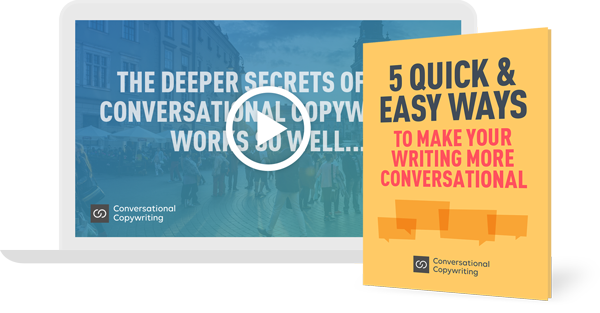
When the web arrived in our lives, way back in the mid 1990s, it heralded a wave of disruptions, one after another.
The web changed how we look for and find information, how we connect with others, how we shop… and a great deal more.
Over time, the web has also profoundly changed the way companies do business.
It was and continues to be massively disruptive to multiple industries. When did you last go to a physical store and buy a music CD? Or rent a movie on a VHS cassette?
Industries have been changed almost beyond recognition – like the taxi business.
And now we have a new wave of disruptions coming our way.
These changes will be fueled by the rise of AI and machine leaning.
And the way I see it, while the rise of the web changed almost everything… AI and machine learning will change even more.
You’re experiencing the impact of AI already…
Ask your phone for the best route to wherever it is you want to drive, and you’re tapping into the power of AI and machine learning.
Same thing when you look at the weather forecast on your phone or computer.
Or when you look at a page of recommendations from Netflix or Amazon.
AI is helping doctors get better at diagnosing diseases, and treating them.
And yes, it is used to determine which ads you see when you browse online.
AI may also be the author of that article or post you just read.
Earlier this year OpenAI, an AI company backed by Elon Musk, decided not to release the full version of its latest text generator.
How come? Because it had become scary good at mimicking the way humans write.
The fear was that if they made the release available to everyone, it could be used as part of disinformation campaigns on a massive scale.
Basically, it’s no longer possible to tell whether a news story has been written by a human, or by an AI.
Yes, that’s scary.
Another concern, at least for some of us, is that if a computer can write as well as a human, where does that leave those of us who write for a living?
To stay ahead of AI, you’re going to have to double down on what it means to be human.
A lot of companies are turning to marketing automation to help drive more sales.
And increasingly, marketing automation relies on the smarts of technologies up to and including AI.
But what happens when all your competitors are also using AI?
What happens when they use a better AI?
And what happens when your marketing communications sound like they were all written by “AI-Copywriting-Is-Us”?
Business writing and marketing writing will be the easiest to mimic.
Business writing and marketing writing can be very formulaic.
Case studies, white papers and even sales pages all have a recognizable structure.
That means these types of projects will be the first to be taken out of the hands of professional writers and copywriters, and into the hands of AI.
Your best defence, and advantage, is to be human, imperfect and conversational.
As a writer or as a business trying to stand out from the crowd, you’re going to have to take steps to do what AI can’t do.
You need to be more human.
This means using everyday, conversational language.
It means stepping out from behind the curtain of being a “business”, and showing yourself as a person.
Forget most of what you’ve learned about business writing and marketing writing. Aim to achieve the same outcome, but in your own words.
As a freelancer or solopreneur, this simply means revealing the real you. Your true self. Your imperfections and vulnerabilities. Your raw humanity. Write in a way that comes naturally to you, as an individual.
If you’re heading a business, it means trusting your employees and giving more of them permission to become the human face and voice of your company or organization.
Bottom line… avoid writing in ways that can be mimicked by an AI.
Start writing in you own unique and conversational voice.
Your own voice, at its most persuasive.

Oh, I agree with you Nick. It’s coming. But I weirdly want the challenge. A sales letter form might be easy to mimic, but I’m excited about contacting the company that uses an AI version and asking them to do a split test with my version :-). Or my white paper!
But I definitely agree with you that the best way to combat this is with our own, conversational, voice.
We write in interesting times. : )
Your point about “formulaic pieces” like white papers and case studies caught my attention. Those are what I’m using to launch my solopreneur biz.
But even as I considered that, your overall point of “being human” came back to counter in other ways. Let’s consider initiative, judgement and perspective.
One example: White papers require research from disparate sources: You need to find good information, and also judge what’s relevant. You have to consider how to compose the factoids into a narrative that makes sense, proves points and appeal to emotions.
Likewise for case studies: The most human part of all is the interview, knowing what questions to ask, how to conduct the line of inquiry. The writing part may be formulaic, but not gathering the grist.
I’m steeped in information technology, and studied AI as part of my master’s degree in computer science. I’ve also built business systems that use AI as part of the algorithm. AI can input tons of data and crunch through it from its programming. It can output based on the algorithms.
But as for narrative composition, the most human parts come from initiative, judgement and perspective. Someone’s got to do those parts to feed the machine what it need as input. I’m not impressed by monkey-see/monkey-do.
Like all other marketing fads, we as humans will adapt to recognize what’s real and meaningful versus what is artificial. Perhaps marketing will evolve to require “labeling” of artificial ingredients, otherwise we humans will refuse to read it.
Chris, hi. Thank you for this. I really appreciate the feedback and your thoughts. I love the idea of labeling information to let people know if it contains “artificial” ingredients. I don’t imagine it would ever happen… but it’s still a great idea. : )
Agree with you on being human as that is what allows us to evolve.
Here is a link to another article on this topic… https://write.nu/2VnvYHa